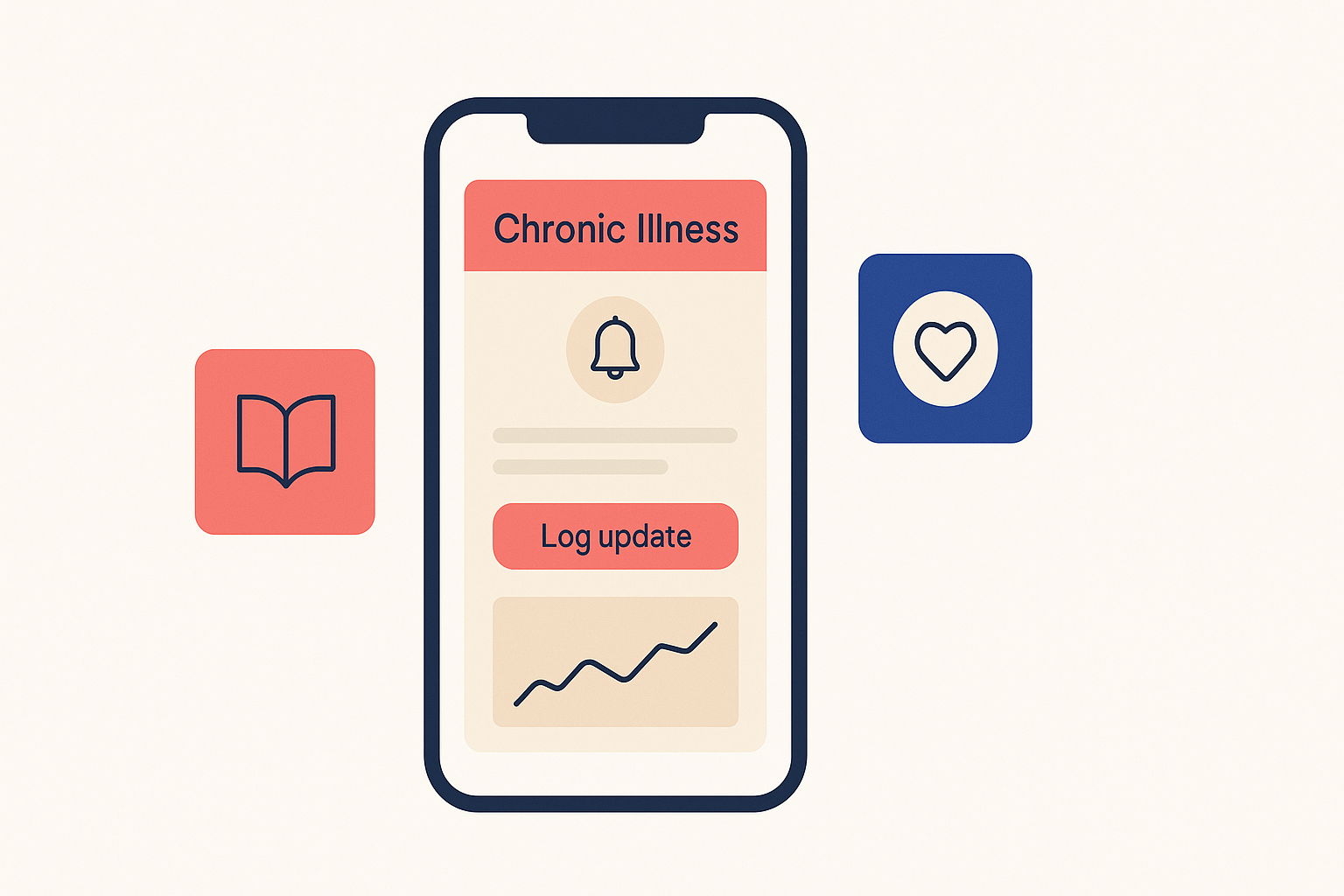Best Chronic Illness Management App Guide

Pee searching for chronic illness management apps are usually looking for practical solutions: tools that let them track symptoms, manage their care, and access trustworthy information. Currently, many existing apps are designed around recording metrics alone, which can be limiting. Patients often need more than logs and charts—they need education, motivational resources, and strategies that help foster consistent self-management. That’s where Audiorista stands out. It enables healthcare providers, coaches, and patient advocates to create branded no-code apps that deliver not just symptom tracking, but also multimedia lessons, structured guidance, and supporting resources. This guide explores what makes a great chronic illness app, the most useful features to prioritize, and how Audiorista can power digital health tools that improve ongoing care and engagement for chronic conditions.
Why apps matter for chronic illness management
Managing a chronic illness goes far beyond periodic doctor visits. Daily life for patients often involves measuring progress, logging symptoms, and sticking to treatment plans, alongside lifestyle adjustments such as managing diet, exercise, and stress. Patients expect features that support them directly where they live their lives: accurate symptom trackers, reliable medication reminders, and accessible lifestyle guidance. Beyond the functional aspects, digital apps can also play an important role in reducing feelings of isolation. By providing resources that help patients structure their routines and stay connected to useful content, chronic illness management apps turn fragmented experiences into guided pathways that improve adherence and wellbeing.
What to look for in chronic illness apps
Not every health app offers the same type of support. The best chronic illness management apps combine functionality with meaningful content. Patients look for tools such as symptom journals where they can record their daily status, progress dashboards that make sense of their data, and reminders that keep medication schedules consistent. However, truly effective apps go beyond these basics. They deliver educational content that explains why certain routines matter, lessons on how to adapt daily behaviors, and resources that can be returned to when challenges arise. Many apps focus exclusively on data input and tracking, which is useful but incomplete. Without access to content and community-based learning, patients often miss out on the holistic support that encourages long-term engagement and healthier routines.
How Audiorista supports chronic illness management
Audiorista provides healthcare professionals, coaches, and advocates with a no-code environment to create self management apps for patients living with chronic conditions. Instead of relying solely on rigid trackers, providers can package their knowledge into audio or video lessons, text libraries, playlists, and structured resource hubs. Patients then receive accessible content directly within their app experience. This flexibility allows educators to personalize learning modules and adapt the material for different patient groups. A patient managing arthritis, for example, might receive guided routines and lifestyle lessons, while someone with diabetes can receive nutritional education and daily habit strategies—all delivered in a multimedia format. By balancing data collection with high-value educational content, Audiorista ensures digital health tools remain useful and supportive.
Building apps without coding
One of Audiorista’s defining advantages is that it’s a no-code platform, meaning healthcare providers and coaches don’t need programming knowledge to build functional chronic illness apps. This drastically lowers the barrier to entry for organizations and individuals who want to provide added value to their patients. With Audiorista, you can learn how to build an app without coding, making the process accessible to non-technical users. You can also preview branded no-code apps before launch to see exactly how your app will look and function on a patient’s device.
The no-code approach not only accelerates deployment but also allows for strong branding flexibility. Tailored design ensures the app feels like a natural extension of the provider’s identity and mission. Integrated multimedia content brings the experience to life, with podcasts, videos, and guides making the app more engaging than a standard data entry tool. For healthcare professionals seeking to move beyond standalone trackers, Audiorista’s no-code builder is a direct pathway to delivering an interactive digital health solution.
Integrating trackers with guided support
Relying solely on trackers can help patients record information, but the real progress comes when that tracking is combined with guided support. By layering educational modules and motivational resources on top of basic symptom logs, patients are encouraged to not only collect data but to act on it. This results in stronger long-term adherence to treatment plans and daily routines. Healthcare coaches and educators can distribute materials at scale, supporting multiple patient groups simultaneously while still offering targeted guidance. The result is an engagement-driven ecosystem, where tracking is seamlessly integrated with learning, and patients feel supported rather than left with just numbers and reminders.
Create your own chronic illness management app today with Audiorista—deliver symptom tracking guides, supportive lessons, and tailored health programs without writing a single line of code.


